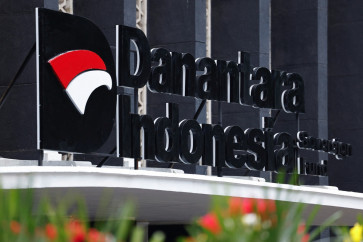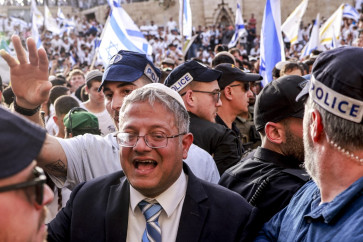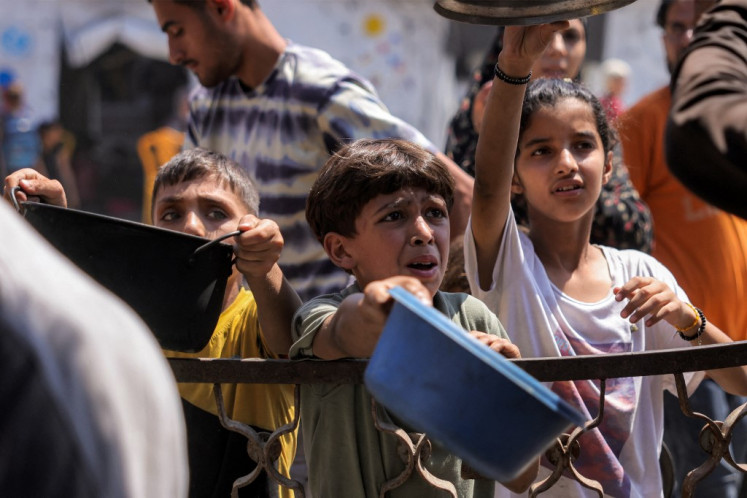Popular Reads
Top Results
Can't find what you're looking for?
View all search resultsPopular Reads
Top Results
Can't find what you're looking for?
View all search resultsDealing with democratic transition in Egypt
The wave of revolution has shaken the political stability in Egypt since the beginning of 2011
Change text size
Gift Premium Articles
to Anyone
T
he wave of revolution has shaken the political stability in Egypt since the beginning of 2011. Demonstrations demanding sweeping reforms led to the end of the authoritarian regime, but although the elites have been toppled, the impact of political turbulence still remains intact.
A bloody clash between Coptic Christian demonstrators and the security forces not only claimed 25 lives and wounded 272 others on Oct. 9, but also threatens multiculturalism as the pillar of Egypt’s national integrity.
The attacks on civilian minority groups have revealed two major problems: first, a mutually suspicious relationship between the Coptic Christian followers and the majority Muslim community; and second, military politicization that weakens the public sphere and civil society as the basis of democracy.
Conflicts between Muslim and Coptic Christian communities have occurred for decades and worsened after the fall of Mubarak. The end of Mubarak’s presidency has stimulated the resurrection of Salafi and other “right wing” Islamic groups, including Ikhwanul Muslimin, which were politically repressed under the authoritarian regime.
Some accuse Mubarak’s loyalists and military elements of masterminding the sectarian conflicts, violence, intimidation, discrimination and riots. The ruling government identified the actions as political revenge, or “revolution against the flow” (ats-tsaurah al-mudhadah), to convince the public that Mubarak’s style of government was still needed in Egypt.
If the tensions are not well-managed, they will potentially lead to civil war or even national disintegration. To deal with the situation, Egypt could learn from Indonesia’s experience on how to save a country from the threat of instability and disintegration in the post-Soeharto era.
Like Indonesia under Soeharto (1966-1998), Egypt under Hosni Mubarak was recognized as a peaceful country in which various ethnic and religious communities lived together in harmony and peace. Unfortunately, the peaceful atmosphere was not constituted by established social values and public awareness, but by military and political pressures. Both Soeharto and Mubarak leaderships emasculated the press, resisted criticism and neutralized dissent and criticism by repression, manipulation and co-optation through a system of patronage.
That is why, when the authoritarian regimes were toppled, the horizontal and communal conflicts based on ethnicity, culture, or religion resurfaced, shaking political and security stability. That is “the big bang of revolution”.
Theoretically, when democratic behavior is weak, parochialism increases. Parochial mobilization also potentially leads to horizontal conflict, which is also incited by primordial forces. This situation can pose a political barrier for the future trajectory of democracy in Egypt.
The wave of democratization as the result of revolutionary movements has opened up the possibility for minorities and marginalized groups to participate in the policy making process. Because of that, Egypt, like Indonesia, has become trapped in the period of democratic transition.
Democratic transition is marked with intensive interaction, confrontation, competition as well as compromising interests among apparatus, politicians and other societal actors, and the political process is less able to achieve good governance.
It remains unclear how long a transition toward democracy can last. Every state has different experiences and opportunities, depending on their readiness. The process, however, can be accelerated by engaging, educating and empowering people to enhance the basic principles of democracy.
Completing the transition is a long and complicated process, particularly in developing countries. There are numerous factors that may obstruct efforts to consolidate democracy, such as a neopatrimonial political system, widespread poverty, deep rooted corruption, and military politicization, among other things.
The world may acknowledge Indonesia has succeeded in passing the democratic transition benchmarks and maintaining its territorial integrity after the political turbulence in 1998. But now, Indonesia is still struggling to transform its democratic achievement into an effective instrument to establish good governance and clean government.
On the other hand, Egypt has a great momentum to change its destiny. By learning from Indonesia’s experience, Egypt may not only be able to consolidate its democracy and keep its national integrity intact, but also establish good governance and clean government which was absent during the 30 years of Mubarak’s rule.
Conversely, if Egypt fails to navigate the democratic transition well, a more destructive political crisis will prevail in the region, which will pose a serious threat to global peace and international stability.
The writer is a lecturer in the Department of International Relations, Paramadina University, Jakarta.










